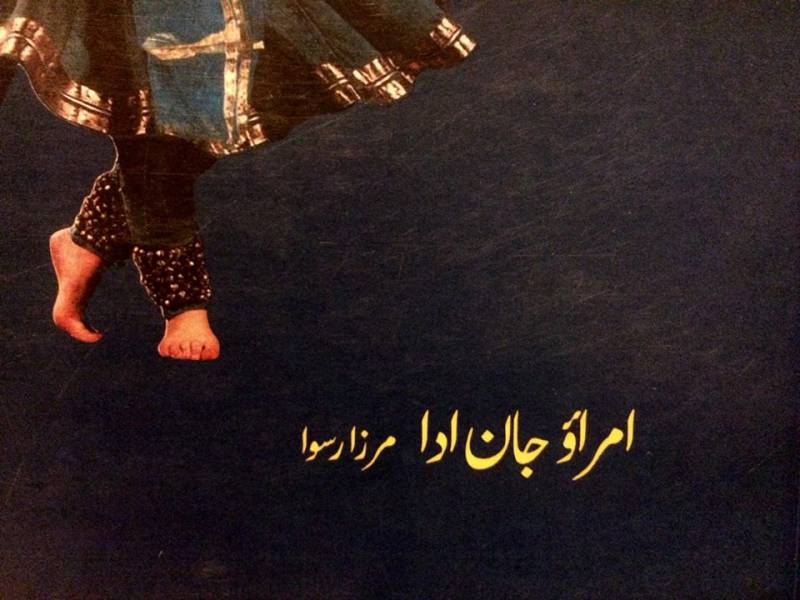Urdu has a centuries old poetic tradition. Writing and appreciating poetry was considered an elite form of linguistic expression. On the other hand, prose in those days was mostly in the form of Dastaan (storytelling). It was a beautiful tradition. Storytellers were trained professionals in the art of telling tales who knew how to captivate the imagination of their listeners. They would narrate the story in such an interesting way that their audiences felt obsessed with the characters and the story. Stories were mostly based on fictitious fantasy themes packed with sorcerers, genies, clever men with lucky charms, brave heroes and of course a lot of beautiful women. These stories were later penned down and published in book form. However, as the times changed and life took a faster pace, the tradition of storytelling faded away and was replaced by short story and novel which were essentially European forms of literature. For its ease of reading, writing and publishing, short story flourished rapidly in Urdu and became very popular. Novel on the other hand remained deficient. Great novels have been written in Urdu which are as good as classics from any language. But the number is far lesser than the number of great novels in European or even regional languages like Persian or Bangla. This series of articles attempts at exploring the best of Urdu novels ever written.
In late 19th century Lucknow, there lived a gentleman by the name of Mirza Hadi Ruswa. As the name suggests, he was a poet. In those days there used to be at least one poet in every house in Lucknow. But Ruswa was not just a poet. He was a man of many talents. A scholar of Arabic and Persian, Ruswa had a great passion for Philosophy, Chemistry, Mathematics, Astronomy and Music. He was from the first generation of Indian Muslims who acquired formal English education and passed exams from universities. Mirza Ruswa was employed on teaching positions at various prestigious educational institutions. Though an extremely talented man, he could not achieve anything significant in any field of his interest because of his carefree nature. To make some extra money in order to pay off his debts Ruswa started writing novels which were then known as Qissa Kahaniyan. These story books were popular among the public and were a quick way to make some money. Ruswa was never serious about writing novels. He dictated the story to one of his pupil and manuscript was sent to the publisher without any final touches. Umrao Jan Ada, a novel which made Mirza Hadi Ruswa a legendary author and one of the earliest pioneers of novel in Urdu was written just like that, without any serious intention.
Mirza Ruswa knew a courtesan Umrao Jan who was famous for her dance and singing in Lucknow around the time when British annexed the Kingdom of Awadh. She was also a highly learned woman and a poetess. Years later, they met again when they were both past their prime. On Ruswa's insistence, Umrao Jan narrated to him the story of her life. He kept writing it without Umrao Jan's knowledge. It was shown to her when the manuscript was ready. Umrao Jan was so furious that she wanted to tear it apart. Imagine if she had done so, Urdu would have been deprived from a fascinating story. She didn't tear it apart but it is said that she remained angry with Ruswa and even published a book against him.
Umrao Jan and Mirza Ruswa both died but the book lived on. With the passage of time, when even the remnants of the fascinating world of royal Lucknow were rapidly fading away, Umrao Jan's worth kept increasing as the true picture of a lost world. Apparently the story is based on the life and times of Umrao Jan, one of the most famous courtesans of her time, but the book is worth much more than that. It is a documentary novel. Ruswa paints his scenes beautifully and attention to detail is amazing, which gives an exact picture of that time. It chronicles the finest Urdu language spoken in Lucknow in those days and not only the way of living, dressing, activities, mannerism and social intercourse but political and sociological realities of that era. The novel is a mirror image of its time. It portrays in detail a wide variety of characters from upper and lower spectra of the society and paints a true picture of their lives. However, the major focus of the novel remains on Lucknow's exquisite courtesan culture and emerges as the most authentic work on it.
Umrao Jan Ada has stood the test of time. Today, it is considered the first great Urdu novel. It has also inspired dramatists and film makers. Consequently, countless stage plays, a television series and three full length feature films have been made on this novel. Muzaffar Ali's 1981 release Umrao Jan is the finest, most critically acclaimed and popular film version.






